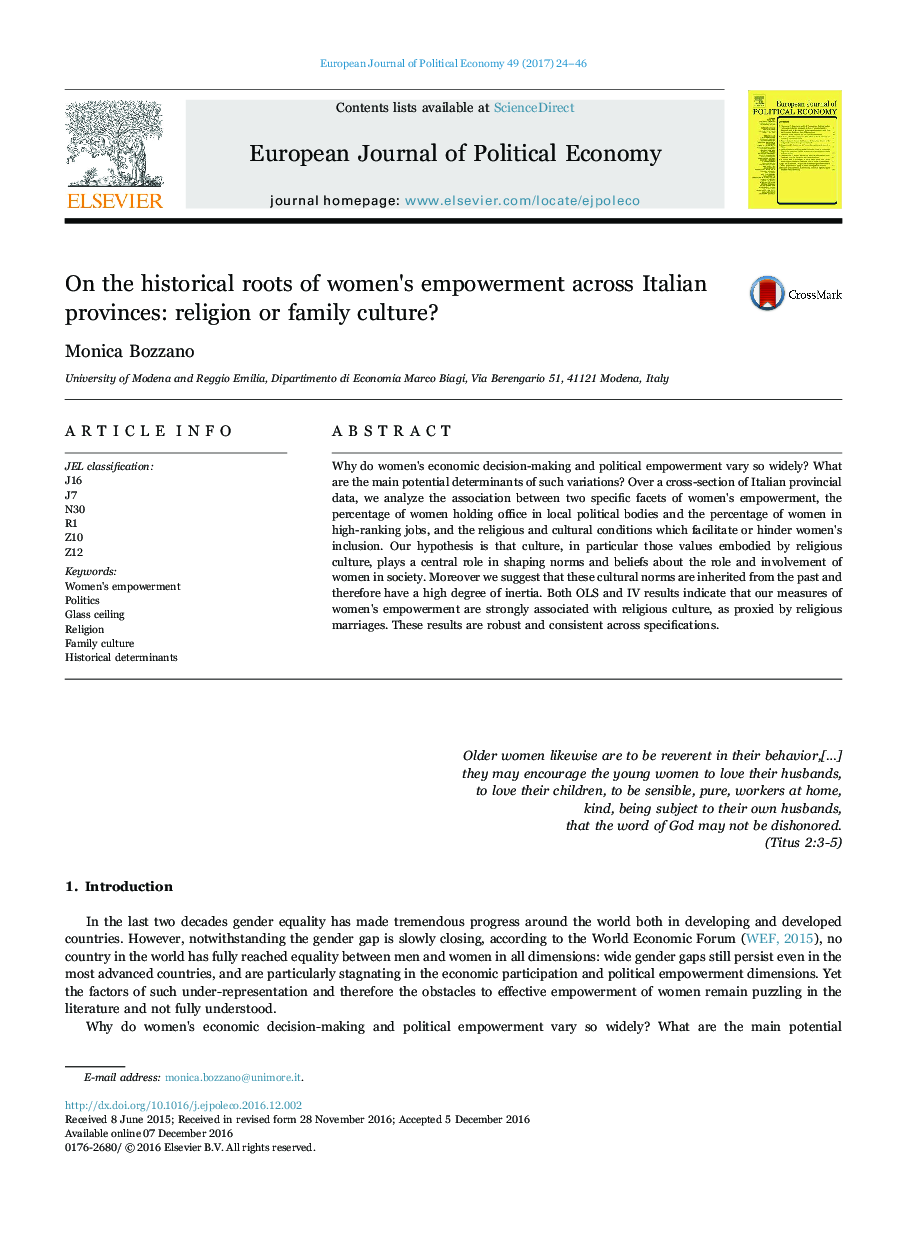| Article ID | Journal | Published Year | Pages | File Type |
|---|---|---|---|---|
| 5067786 | European Journal of Political Economy | 2017 | 23 Pages |
â¢We study the origins of women's under-representation in politics and leadership in Italy.â¢At the province level, we find a robust negative influence of religion on both outcomes.â¢Religion is a major conveyor of gender inequitable roles.â¢Gender norms are inherited from the past and have a high degree of inertia over time.
Why do women's economic decision-making and political empowerment vary so widely? What are the main potential determinants of such variations? Over a cross-section of Italian provincial data, we analyze the association between two specific facets of women's empowerment, the percentage of women holding office in local political bodies and the percentage of women in high-ranking jobs, and the religious and cultural conditions which facilitate or hinder women's inclusion. Our hypothesis is that culture, in particular those values embodied by religious culture, plays a central role in shaping norms and beliefs about the role and involvement of women in society. Moreover we suggest that these cultural norms are inherited from the past and therefore have a high degree of inertia. Both OLS and IV results indicate that our measures of women's empowerment are strongly associated with religious culture, as proxied by religious marriages. These results are robust and consistent across specifications.
